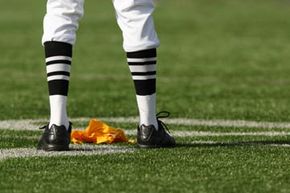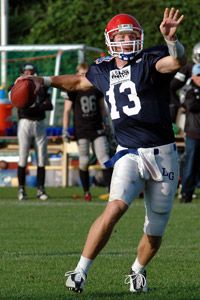The final seconds of the game -- the quarterback throws to the end zone: touchdown! No, the official is ruling the receiver was out of bounds. Now comes the agonizing wait while the play is reviewed.
This scenario has become a common feature of NFL football. It's made possible by the review rules, also known as the instant replay rules. The rules give the officials on the field another set of eyes to get calls right. With high definition and super slo-mo, those eyes are often much keener than those of any official or fan.
Advertisement
Review rules have sometimes generated controversy. Some fans and team owners prefer to keep the human factor in the game. Officiating errors are part of the history and lore of the league, they argued. Others felt that reviews slowed the game too much, especially for fans sitting in Buffalo's icy Ralph Wilson Stadium in December.
The rules have their origin in the invention of television instant replay, which was first used in the broadcast of the 1963 Army-Navy football game [source: Starkey]. Once fans at home had access to replays, bad calls by the officials became embarrassingly obvious. The league was pressured to use the replay tool to get them right.
But the first review rules didn't come into effect until 1986. They put the decision to review under the complete control of a video-review official in the booth. Many thought the system was arbitrary and took too much time. It was abandoned in 1992 [source: Long].
After several disputed calls during the 1998 season, revised review rules returned in 1999. The new rules gave coaches the power to call for a review for most of game. They assigned the referee, not an assistant in the booth, the duty of making the decision. These rules were renewed with minor revisions until 2007, when the league made them permanent [source: Associated Press].
But not all plays are reviewable. Read on to find out which are, and which are not.

